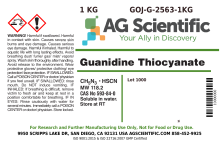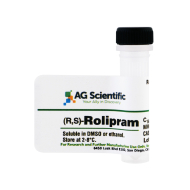Actinomycin IV; Actinomycin C1; Dactinomycin; Cosmegen; Meractinomycin; NCI C04682; NSC 3053; Oncostatin K; Glycopeptide, 4a
50-76-0
1255.4
C62H86N12O16
DMSO, Ethanol
-20°C
Actinomycin D is a polypeptide antibiotic first described by Waksman. It is bacteriostatic in nature, especially towards gram negative bacteria. Actinomycin D was the first antibiotic shown to have anti-cancer activity. Produced by several Streptomyces spp.
Actinomycin is a clear, yellow liquid administered intravenously and most commonly used in the treatment of a variety of cancers. Actinomycin D can induce apoptosis in several cell lines such as lung and prostate cancer lines, and human blood lymphocytes.
Used as a radiosensitizer in adjunct to radiotherapies since it can increase the radiosensitivity of tumor cells, by inhibiting repair of sublethal radiation damage and, delay the onset of the compensatory hyperplasia that occurs following irradiation.
In cell biology, actinomycin D is shown to have the ability to inhibit transcription, this occurs by binding DNA at the transcription initiation complex and preventing elongation of RNA chain by RNA polymerase.
0.1 lbs
Research or further manufacturing use only, not for food or drug use.





